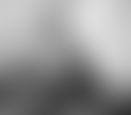 Total Filling Station
Total Filling Station
 Total Filling Station
Total Filling StationJean Prouve (April 8th, 1901 - March 23rd, 1984) was a French engineer and designer. His main achievement was transferring the manufacturing technology from industry to the architecture, without losing the aesthetic qualities. Jean Prouve was born in Nancy. He grew up surrounded by the ideals and energy of his father Victor Prouve's art collective, "l'Ecole de Nancy". This school came together with the intent of making art readily accessible, to forge a relationship between art and industry, and to articulate a link between art and social consciousness.
Workshop and Studio
Prouve was first apprenticed to a blacksmith, Emile Robert, and then to the metal workshop of Szabo. In Nancy in 1923 he opened what would be the first in a string of his own workshops and studios. He produced wrought iron lamps, chandeliers, hand rails and began designing furniture. In 1930 he helped establish the Union of Modern Artists whose manifesto read, "We like logic, balance and purity."Although Jean Prouve shaped his public image around the idea that he was not married to a specific aesthetic, the tenets of "l'Ecole de Nancy" were certainly a powerful influence on his body of work. "I was raised," Prouve says, "in a world of artists and scholars, a world which nourished my mind."
Ateliers Jean Prouve
He opened the successful "Ateliers Jean Prouve" in 1931 and began collaborating with French architects Eugene Beaudoin and Marcel Lods on projects such as the Maison du Peuple in Clichy, an aviation club and an army camp. He also collaborated with Charlotte Perriand and Pierre Jeanneret (Le Corbusier's cousin and collaborator) on a variety of furniture designs. The war kept "Ateliers" in business manufacturing bicycles and a stove called "Pyrobal" that could burn on any fuel. During the war Prouve was also politically active as a member of the Resistance and he was recognized for this involvement after the war by being named mayor of Nancy. He was also made a member of the Advisory Assembly after Liberation and made the Departmental Inspector for Technical Education. "Ateliers Jean Prouve" were commissioned by the Reconstruction Ministry to mass-produce frame houses for refugees.
The Maxeville factory
In 1947 he built the Maxeville factory where he produced furniture and undertook extensive architectural research on the uses of aluminum. They built industrial buildings from aluminum and sent hundreds of aluminum sheds to Africa. After Maxeville he started "Constructions Jean Prouve" whose major works were a cafe in Evian, a pavilion for the centennial of aluminum and the Abbey Pierre house. In 1957 he started the Industrial Transport Equipment Company and built the Rotterdam Medical School, the Exhibition Center in Grenoble and the Orly Airways Terminal facade.
Metal Furniture
The metal furniture of Jean Prouve was produced copiously in every studio and workshop. The style is set apart from the Bauhaus steel furniture of the time by his rejection of the steel tube technique. Prouve had more faith in the durability and form of sheet metal, "bent, pressed, compressed than welded". His designs speak of a work philosophy that includes knowledge of the materials at hand, a commitment to collaboration between artists and craftsmen, an attention to evolving technical developments, and "the principle of never postponing decisions so as neither to lose the impetus nor indulge in unrealistic forecasts". Prouve was influential in the development of the idea of nomadic architecture, likening a chair to a house, and designing both with portability in mind.
All our texts and many of our images appear under the Creative Commons Attribution Share-Alike License (CC BY-SA). All our content is written and edited by our community.







